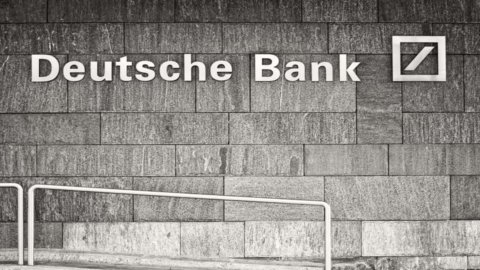After Poland, Finland and Bulgaria, now it's the turn of the Netherlands. Gazprom, the state giant that manages Russian gas, has announced that it has suspended gas deliveries to the Dutch company GasTerra because the latter refused to pay for supplies in rubles. The news comes a few hours after the agreement reached at the extraordinary European Council on the sixth package of sanctions against Russia which should also include the expected oil embargo.
Gazprom and the stop to gas supplies to the Netherlands
“Gazprom has completely stopped deliveries of gas to GasTerra (Netherlands) due to non-payment in rubles,” the company said in a statement posted on Telegram.
The news had already been in the air since yesterday, Monday 30 May, i.e. since GasTerra itself had announced its intention to do not join the ruble payment system established two months ago by Vladimir Putin.
The company, which purchases the gas on behalf of the Dutch government, also announced that, in order to make up for the non-arrival of the 2 billion cubic meters of gas which Russia was supposed to deliver from June to October, has already entered into new supply contracts. In fact, at least on paper, Amsterdam should be able to withstand the blow, given that gas from Russia only covers 5% of its needs.
GasTerra has also specified that it has repeatedly asked Gazprom to comply with the terms of the previously stipulated commercial agreement, above all those relating to the payment methods, but without success. “The opening of accounts in Moscow under Russian law is controlled by the Russian regime. It's about too great a risk for our societythe company said.
GasTerra is 50% controlled by Energie Beheer Nederland, a company which in turn is owned by the Dutch state. The remaining half is instead under the control of Shell and Exxon Mobil.
Towards the suspension also to Denmark
There could soon be 5 states subject to the stoppage of supplies from Russia. To the four countries already mentioned Denmark could join as early as tomorrow. Orsted, the company that manages the Danish gas, has in fact communicated that it will not respect the deadline of Tuesday 31 May for the payment of disbursements in rubles and will continue to pay in euros.
“Gazprom Export continues to demand that Orsted pay for gas supplies in rubles. We have no legal obligation under the contract and have repeatedly informed Gazprom that we will not do this. The payment deadline is May 31st and Orsted will continue to pay in euros,” the company said in a statement. “There is a risk that Gazprom will stop supplying Orsted with gas,” but the company. “he is preparing for this scenario”.
The Danish company also explained that, since there are no gas pipelines directly linking Russia to Denmark, there cannot be a direct stop of supplies however, the company will have to obtain supplies by purchasing the raw material on the European gas market.
We recall that on April 19, Prime Minister Mette Frederiksen had presented a plan aimed at making Denmark independent of Russian gas. According to the plan, half of Denmark's 400 households currently heated by gas will have to switch to electricity-driven district heating or heat pumps by 2028. For the remaining households and industry, the plan also sets the development of biogas from renewable sources, "which will ensure that we are free from Putin," said Climate and Energy Minister Dan Jorgensen at a press conference. The Danish government has also strengthened its plan for the development of renewable energies and now plans to quadruple solar installations and especially onshore wind, by 2030. Today, wind provides Denmark with about half of its electricity, the rest is dominated by biomass and coal.
Gas, on the other hand, supplies around 18% of the energy consumed in the country every year, according to official statistics. Much of it has long come from deposits in the North Sea, which however are facing rapid decline. In 2019, domestic production covered just 72% of gas consumed in Denmark, according to the Danish Energy Agency, with Russia among the main suppliers of imports.





